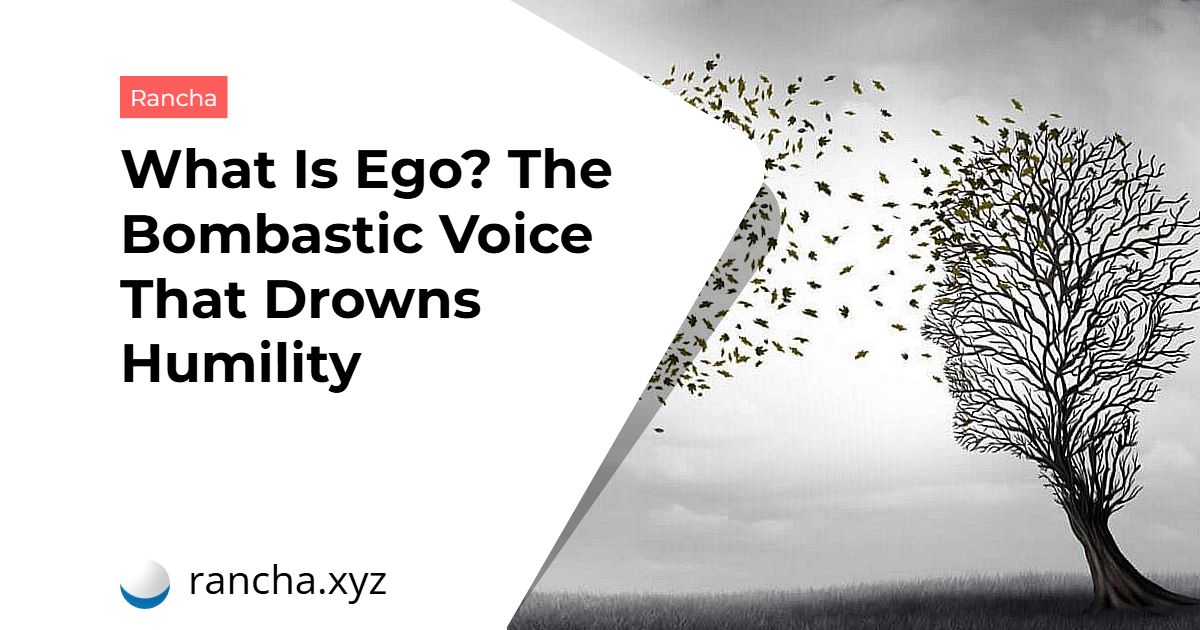What is the ego? It is often defined as an elaborate social mask with touches of pride and many defense mechanisms. It is pride that makes us climb a mountain for the world to see us, not to see the world from there with serene humility. Few psychological constructs actually harbor so many definitions and, in turn, so varied.
The concept of ego, which comes from Latin and means ‘I’, is one of the most used dimensions when we talk about our personality. It is true that one of its most common meanings is that of haughtiness, that of the self-image that seeks to impose a part of ourselves on others. However, it is still just another mental construction, an identity that we build with our internal factory of ideas, experiences, emotions and needs.
Behind this self-constructed self, behind this external and artificial mask, is our authentic self . The problem arises when we are dominated, subordinated, and overly attached to that outer layer that we carved out to survive in society. Let’s dive a little deeper into this subject.

What is the ego? 5 tips to understand this psychological construct
If we ask ourselves what the ego is, we must realize that we are facing one of the most complex constructions in psychology. Furthermore, in the psychological panorama there are many concepts that include the prefix “ego”, such as selfishness, the egoic mind, self-centeredness and even the ego’s defense mechanisms.
We can say that the school that most developed this concept was, without a doubt, the psychodynamic theory and, specifically, Sigmund Freud. However, it should be noted that Eastern philosophies have been studying this issue for centuries, to the point that anyone who goes deeper into Buddhism finds a vertebral theme: that which refers to the ego.
The philosophy and concept of the ego
Inmanuel Kant explained to us in his book The Critique of Judgment that the ego brought together all the mental constructions and representations that a person had. In turn, Jean Paul-Sartre conceived of this entity in a very similar way.
For the existentialist philosopher, the ego was not in our consciousness, it was not part of it. In fact, it was something external, a self-constructed entity in its contact with society.
The legacy of Sigmund Freud
As we have already pointed out, the current that provided us with the most literature on the psychic instance of the ego was, without a doubt, Sigmund Freud. The father of psychoanalysis stipulated that the human being is subject to three opposing forces that govern our way of acting and responding to the world. These forces are the ego, the id and the superego.
In this case, the ego is our representation of the world around us. Likewise, it is the entity that tries to control our baser impulses and instincts. What he’s doing, in essence, is trying to satisfy desires in a way that’s socially acceptable.
Spiritual, Mystical and Buddhist Perspectives
If we ask ourselves what the ego is, the current that deepened this idea the most was Buddhism. However, it differs somewhat from existentialist philosophical perspectives and psychodynamic psychology.
- According to Buddhism, the ego is a misconception of the self. It comes with us from birth and our image, identity, nationality, tastes, passions, culture, education, beliefs are integrated into it… But this whole flow of dimensions is nothing more than superficial constructions. These are processes that we adhere to and that actually hide the authenticity of our self because they are outwardly, not inwardly oriented.
- The ego is a false identity that brings suffering because it subordinates us to what we lack.
- One of the current figures who has addressed the concept of ego the most is Eckhart Tolle. Once again, the idea arises that this construct causes discomfort to human beings. People, according to him, live excessively attached to thoughts, fears, needs, desires… Also to all the legacies of society that alienate us and create, little by little, a false self…

The ego from the psychological point of view: how to treat it?
When we ask ourselves what the ego is, the words of Portuguese writer Fernando Pessoa come in handy: “ I look, and things exist. I think, and only I exist”. This psychological construct is still a part of ourselves that we create to function socially. This means that we can sometimes have a healthy ego that reverts to our well-being.
It can also be the other way around: we can live with a psychological entity that is desperate to feed on what’s out there, desperately seeking recognition and attention. Let’s see in detail.
Effects of a distorted ego
The distorted ego makes us subject to a constant sense of lack. It is a reflection of the mind obsessed with knowing what others think of you. It is the look that meets the world with fear: fear of failure, of not being loved, of not being as others expect or of having less than others.
Inner fear also causes us to develop defense mechanisms such as pride and arrogance, masks that protect inner weakness.
The healthy ego that takes care of our psychological balance
Is there a healthy ego? Actually yes. A healthy ego allows us to have a meaningful life because it helps us to be in harmony with who we are and what we show, with what we need and what we offer, without getting attached to the outside.
- It helps us understand that we all deserve respect, that no one is better than anyone else, that satisfaction comes from tolerance and also from self-care.
- A balanced ego is the exercise of good self-esteem, a bridge between the inside and the outside to recognize the value of life, giving it meaning.
- By doing this, by finding an inner meaning, the feeling of external want disappears, and that is where the authentic welfare revolution begins.
To conclude, in addition to the complexity in defining this concept, it is worth remembering something very simple. The ego is neither good nor bad, it is a part of ourselves, a subjective and self-constructed entity that we must transform in order to balance our happiness and not our suffering. Let’s think about it.
 rancha.xyz Be free to choose their own route to self-knowledge, health and balance of body and soul.
rancha.xyz Be free to choose their own route to self-knowledge, health and balance of body and soul.




